Guides • Understanding Publishing
Last updated on Oct 15, 2025
Where to Submit Short Stories: 20 Places Accepting Submissions
Savannah Cordova
Savannah is a senior editor with Reedsy and a published writer whose work has appeared on Slate, Kirkus, and BookTrib. Her short fiction has appeared in the Owl Canyon Press anthology, "No Bars and a Dead Battery".
View profile →So, you love writing short stories, and you feel like you've honed your craft enough to break into the world of publishing. It’s time to start looking for outlets that are open to short story submissions. As an aspiring author, these publications can serve as a training ground where you can learn to appeal to editors, build some credits for your author bio, and grow your fan base. Plus, it’s a chance to get paid for your writing, which is nothing to sniff at.
To help you get started, we've compiled 20 publications that accept short stories.
Magazines open to short story submissions
1. AGNI
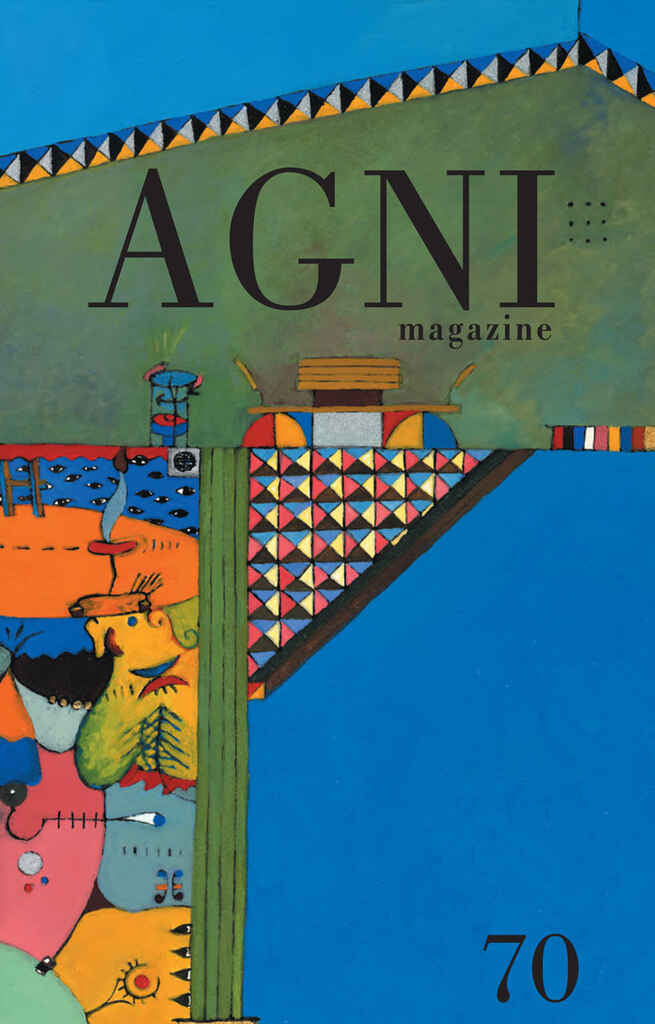 About: On the lookout for distinctive voices with fresh perspectives, AGNI magazine proudly showcases talented writers from all around the globe. Judging by its recent issues, this magazine focuses on stories from writers in the early stages of their careers — making it an invaluable platform for emerging literary talent.
About: On the lookout for distinctive voices with fresh perspectives, AGNI magazine proudly showcases talented writers from all around the globe. Judging by its recent issues, this magazine focuses on stories from writers in the early stages of their careers — making it an invaluable platform for emerging literary talent.
Submission window: September 1st – December 15th | February 15th – May 31st
Compensation: $20 per printed page
Word Count: No set word limit
Submission Guidelines: Here
2. The Atlantic
About: Founded in 1875, The Atlantic has been home to some of "the most urgent essays, the most vital literature," publishing works of nonfiction, fiction, and poetry. Aside from writing an exceptional piece, your key to getting through the door of this venerable institution is to be familiar with what they've already published.
Submission window: Ongoing
Compensation: Unspecified
Word Count: Unspecified
Submissions Guidelines: Here
3. Guernica
About: A non-profit magazine operated by a passionate team of volunteers, Guernica has a reputation for literary works that challenge boundaries and pose thought-provoking questions at the intersection of culture and politics. They are open to short fiction, nonfiction, poetry, interviews and more, focusing mostly on themes of “identity, conflict, culture, justice, science, and beyond.” They do not accept flash fiction or serialized longer pieces.
Submission window: Ongoing
Compensation: $150 for fiction
Word Count: Between 2,000 and 7,000
Submissions Guidelines: Here
Q: Do agents and publishers consider publications in literary magazines or awards from writing contests when evaluating an author?
Suggested answer
Yes, they absolutely do! One of my friends recently got a publishing offer for her picture book from a relatively informal online contest. So, it happens! Contests with a large online community aspect also help writers connect with each other, and this is so important for a writer in the long term.
Short story publications in prestigious magazines are an important part of how writers in the literary genre build their careers. This also goes for publications in magazines or newspapers that carry prestige in any genre. The New York Times' Modern Love column has launched a couple memoirs. I would say, though, that these magazines are struggling to survive amid the noise of the internet.
For non-fiction and memoir writers, getting published in outlets that are relevant to your target audience can help build your "platform"--your authority on a topic, and how big of an audience you can tap into. You can often take chapters or excerpts of your book and send them out as essays to various publications. Even if an agent or publisher doesn't see these articles, listing those publishing credits in your proposal will help prove your authority on the topic.
Tracy is available to hire on Reedsy ⏺
4. Black Warrior Review
About: Established by graduate students in an MFA Program in Creative Writing, Black Warrior Review releases two issues annually, encompassing a mix of fiction, nonfiction, poetry, and comics. Central to their mission is the desire to provide a platform for underrepresented voices — if your work ventures into the realm of the strange, unorthodox, or culturally niche, consider adding them to your hit list.
Submission window: December 1st – March 1st | June 1st – September 1st
Compensation: One-year subscription + nominal lump-sum fee for all works published
Word Count: Up to 7,000 for short stories
Submission Guidelines: Here
5. PROMPTED
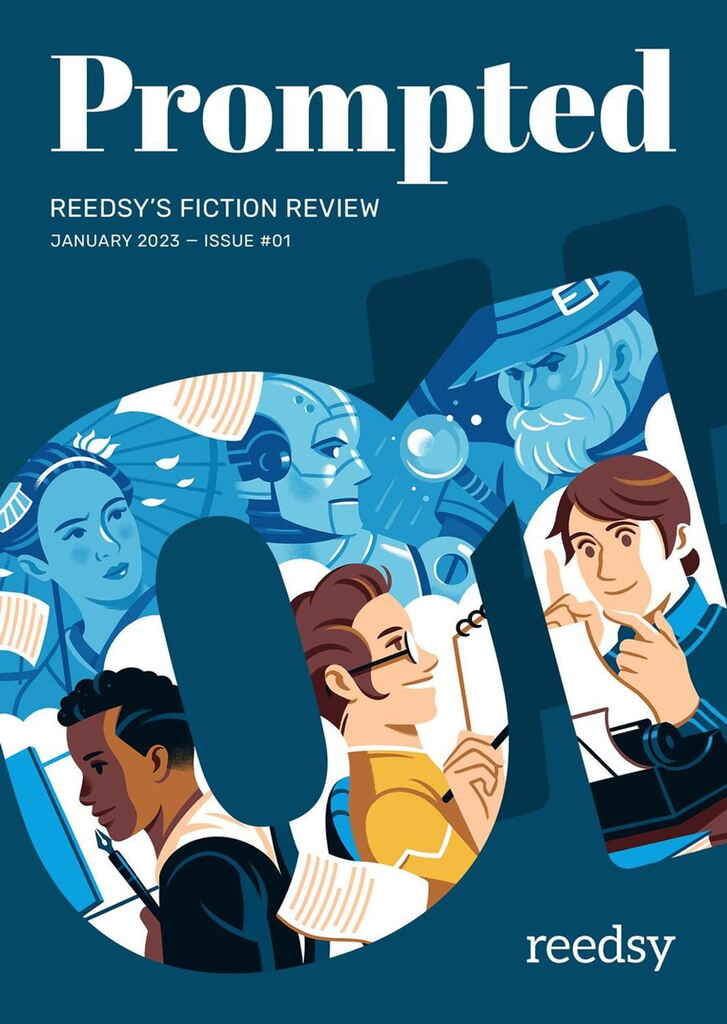 About: Reedsy’s very own fiction review, it presents a selection of short stories handpicked from the winning entries of its weekly writing contest. Each contest winner receives a $250 cash prize, and is considered for a feature in PROMPTED. There are no genre restrictions 一 in general, winning stories are those that are well-crafted, stylistically creative, and emotionally moving.
About: Reedsy’s very own fiction review, it presents a selection of short stories handpicked from the winning entries of its weekly writing contest. Each contest winner receives a $250 cash prize, and is considered for a feature in PROMPTED. There are no genre restrictions 一 in general, winning stories are those that are well-crafted, stylistically creative, and emotionally moving.
Submission window: Ongoing
Compensation: $250 for winning the short story contest
Word Count: Between 1,000 and 3,000
Submission Guidelines: Here
6. Boulevard Magazine
About: Based in St. Louis, Missouri, Boulevard is a biannual literary magazine publishing contemporary fiction, essays, interviews, and poetry. They are welcoming of unpublished authors, so if your work is ready for its main stage debut, this may be your chance to shine. Note that they don’t accept works of science fiction, erotica, western, horror, romance, or children's stories.
Submission window: November 1st – May 1st
Compensation: $100 – $300
Word Count: Up to 8,000
Submission Guidelines: Here
7. The Georgia Review
About: Published quarterly by the University of Georgia since 1947, The Georgia Review is a journal that features stories addressing “the evolving concerns and interests of readers from around the world.” They publish short stories of literary fiction, but also works of poetry, essays, and book reviews.
Submission window: August 15th – May 15th
Compensation: $50 per printed page, up to $800
Word Count: Up to 9,000
Submission Guidelines: Here
🧹 To increase your chances of getting your story published, make sure you polish it to professional standards before submitting it. Reedsy's editors are ready to help you tighten your submissions.
Hire an expert
Chris U.
Available to hire
I am an expert in genre fiction, with years of experience evaluating short fiction. I want your wildest stories to find a published home.
Sean L.
Available to hire
Proofreader/editor for 11+ years, reader for 40+, and as a lifelong fan, horror is my go-to genre.
Meredith A.
Available to hire
Professional editor/proofreader with over 10 years of experience. Speculative fiction, post-apocalyptic, dark fantasy, spiritual/new age.
8. New England Review
About: An exciting magazine collecting short stories, novellas, poetry, personal essays, travelogues, and other forms of writing, the New England Review champions all genres with the aim of giving readers “a vital snapshot of the literary moment.” They accept stories of up to 20,000 words, though they tend to prefer those under 10,000. The New England Review is particularly interested in translated work, so if your original piece is in a language other than English, consider hiring a literary translator.
Submission window: September 1st – November 1st | March 1st – May 31st
Compensation: $20 per page ($50 minimum), two copies of the issue, one-year subscription
Word Count: Up to 20,000
Submission Guidelines: Here
9. Daily Science Fiction
About: Daily Science Fiction (DSF) is an online platform that publishes science fiction short stories every single day and distributes them to their email list. They look for character-driven science fiction, fantasy, and slipstream narratives, though they value originality and craft above all else. They’re also open to publishing flash series composed of three or more tales, connected by a shared theme. Their submission window is ongoing, but its worth noting that they do occasionally go on pause.
Submission window: Ongoing outside of December 24th – January 2nd
Compensation: 8 cents per word
Word Count: 100 – 1,500
Submission Guidelines: Here
10. The First Line
About: Offering an opening sentence to use as a starting point for their stories, The First Line challenges writers to craft a unique piece from a shared beginning. They accept short fiction of all genres, as well as essays and poetry. Each of their quarterly issues shares a distinctive first line between all their stories, making it a great place to showcase a writer’s unique lens and style.
Submission window: February 1st (Spring), May 1st (Summer), August 1st (Fall), November 1st (Winter)
Compensation: $25 – $50
Word Count: 300 – 5,000
Submission Guidelines: Here
11. The Incandescent Review
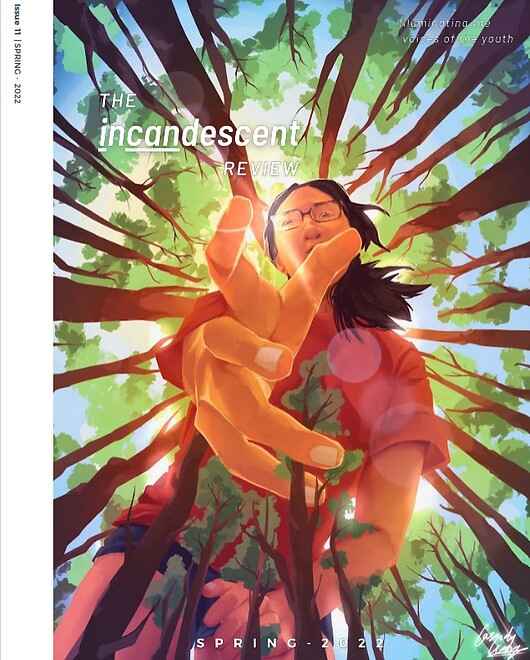 About: Shining a spotlight on young voices, The Incandescent Review caters to writers aged between 13 and 24. With a growing number of teenagers grappling with anxiety in our modern age, this publication serves as a platform for them to articulate their opinions and share their emotional reactions to global issues through the mediums of poetry, prose, visual art, and more.
About: Shining a spotlight on young voices, The Incandescent Review caters to writers aged between 13 and 24. With a growing number of teenagers grappling with anxiety in our modern age, this publication serves as a platform for them to articulate their opinions and share their emotional reactions to global issues through the mediums of poetry, prose, visual art, and more.
Submission window: Ongoing
Compensation: Unspecified
Word Count: No more than six pages per submission
Submission Guidelines: Here
12. The New Yorker
About: Founded in 1925, The New Yorker is an eclectic journal that has published countless iconic works from authors like Edmund Wilson, J.D. Salinger, and Alice Munro, just to name a few. But don’t get discouraged: they’re open to rising writers too. They accept short fiction, essays, poetry, and satire, all sent via email as PDF attachments. In the event that your submission is successful, you will be notified within 90 days.
Submission window: Ongoing
Compensation: Unspecified
Word Count: Unspecified
Submission Guidelines: Here
Q: What are the key red flags authors should look out for when approached by a vanity press?
Suggested answer
Spotting the red flags when dealing with a vanity press can save you a lot of headaches (and money!). Here are some key things to watch for:
- Upfront Fees: If they’re asking you to shell out big bucks to publish your work, it’s a major red flag. Legitimate publishers make money from selling books, not charging authors.
- Unrealistic Promises: Claims like “guaranteed bestseller” or “we’ll get you into every bookstore!” are major eye-roll territory. No one can promise that, and reputable publishers won’t even try.
- Accepting Anything: A real publisher is picky—they have to be since they invest in what they publish. If a press will take your book with zero hesitation (and no editing), chances are it’s more about your money than your talent.
- Vague Contracts or none at all: If the contract feels murky, confusing, or doesn’t make it clear what you’re getting and what rights you retain, that’s a huge red flag. Always know what you’re signing!
- Hidden Costs: Watch for surprise fees for “marketing,” “editing,” or “special services.” It’s a tactic used to squeeze more out of you once you’re already on the hook.
- Pushy Sales Tactics: If they’re coming at you hard with “limited-time offers” or pressuring you to sign fast, it’s a no-go. Legit publishers won’t need to convince you that hard.
- Shady Reputation: Do a quick online search. If you see lots of unhappy authors and stories of people feeling scammed, run the other way.
- Limited Distribution Claims: Be wary if their “distribution network” is mostly online listings without meaningful reach or promotion. Real publishers have genuine connections in the industry and established distribution channels.
- No Editing or Quality Control: If there’s no real editorial process or constructive input, it indicates they don’t care about the quality of your work—just about getting paid.
Bottom line is if it feels off or you’re seeing a bunch of these warning signs, trust your gut and dig deeper. Your work deserves better!
Eilidh is available to hire on Reedsy ⏺
I think we need to first distinguish between vanity presses and hybrid/independent publishers. There are legitimate publishers with a business model that includes an upfront payment from authors. This payment funds the production of the book, and then includes a royalty split in favor of the author, such as 70/30 or even 80/20.
Those are hybrid presses, which help keep much of the decision-making surrounding the book in the author's hands and provide a means for authors to benefit the most if the book sells well. They don't accept every book they are pitched, have quality standards that rival traditional publishers, and make money when more books are sold.
The hybrid model is different from a vanity press, which earns the bulk of its money from the pre-production and printing costs. Vanity presses rarely turn any author down who can pay for its services. Printing and design quality varies but you can still get a good-looking book from a vanity press, it will just be very expensive.
To know if you're dealing with a vanity press or a hybrid/independent press look for:
- Writers guidelines. Do they have any guidelines or will they publish anything?
- A sense of urgency. Vanity presses want to get you to commit and pay them money. This may lead to frequent emails, texts, and phone calls to inquire about the hold-up.
- Distribution details. Once your book is printed, how will the publisher get it into bookstores and, ultimately, readers? They should have a distribution partner, such as Simon & Schuster.
In addition to vanity presses, there are many, many scam operations that have cropped up offering to ghostwrite and publish your book for a couple thousand dollars. Be aware that you will likely get nothing, or next to nothing. Avoid these at all costs.
Scammers may have a legit-sounding company name but will lack any information about the founders and the team members who will be doing the work. They will feature gorgeous cover photos of books they never had anything do with producing, but which look impressive. They will feature "testimonials" and A+ Better Business Bureau (BBB) and TrustPilot ratings that are fake - type in the BBB and TrustPilot URLs yourself to check for the real reviews. And they, too, will hound you to sign on the dotted line and send them money.
If the deal being offered sounds too good to be true, it very likely is. Protect yourself.
But the reality is that few first-time authors will qualify for a traditional publishing deal that doesn't involve paying for production. This is because the Big 5 publishers are risk averse and want book deals from people who have huge platforms and social media follower counts. That is, they want to be almost assured that your book will be a bestseller, and few authors can guarantee that. Which is why hybrid publishing is a terrific alternative.
Marcia is available to hire on Reedsy ⏺
Unrealistic expectations. All vanity publishers can do is produce the physical book and get it onto sites like Amazon. They cannot guarantee any income from sales.
Andrew is available to hire on Reedsy ⏺
The easiest way to distinguish a scam publisher from a reputable hybrid publisher or self-publisher is PRICE. If a publishing firm quotes a fee of just a few thousand dollars for a service package that includes everything from copy editing, cover design, and layout to marketing and publicity—or even ghostwriting and developmental editing—you’re probably dealing with scammers. I know this from experience and from the fact that any single one of those services, when delivered by skilled and experienced professionals, usually costs more than a few thousand dollars. By contrast, the fees charged by the reputable hybrid publishers I know—companies with a track record of obtaining meaningful results for their authors—start in the $15,000 range. Several of my past clients made the mistake of opting for cut-rate vanity presses, and all of them came to regret it. When you hire a publisher that charges cut rates, you get cut-rate services in return.
Peter is available to hire on Reedsy ⏺
The fact that they're a vanity press is the only red flag you need. 😉 Seriously, though, I'd aim for either traditional publishing or full-on self-publishing. These companies who want you to go in on the costs are generally more trouble than they're worth. Caveat emptor.
Brett is available to hire on Reedsy ⏺
It's simple. If a "publisher" approaches you about "publishing" your work, and doesn't offer to write you a check, run away. Okay, that's a bit dramatic. But understand that a true publisher buys intellectual property from creators, Some authors choose to pay to have their book developed (cover, interior, ebook) for convenience. But be aware that you can find all those skills here on Reedsy for much less, and with more personal service.
Mike is available to hire on Reedsy ⏺
Generally, a red flag is when anyone approaches you and asks for funds upfront. This can be an agent or publisher. In general, legitimate agents and publishers have enough people approaching them without them having to pound the pavement to look for authors.
Attending writing conferences is one of the best ways to interact with legitimate agents and publishers. This is where they try to connect with authors directly and will not ask for money from the author.
Melody is available to hire on Reedsy ⏺
13. North American Review
About: As the oldest literary magazine in America, the North American Review boasts a storied history that has seen them print works from American titans like Ralph Waldo Emerson, Edith Wharton, and Flannery O'Connor. Their magazine features short stories, creative nonfiction, nonfiction, and poetry on all kinds of subjects. However — as their title would suggest — they have a particular fondness for stories grounded in North American experience and identity, exploring real-life issues such as the environment, class inequality, and sexuality. As per their website, they also love stories that “start quickly and have a strong narrative arc.”
Submission window: November 2nd – May 1st
Compensation: Unspecified
Word Count: No set word limit
Submission Guidelines: Here
14. One Story
About: Where most literary magazines work hard to curate sympathetic collections of stories, One Story has taken the opposite approach: each of their issues contain just a single piece of short fiction. With a steadfast mission to ensure that short stories and budding authors never fade into literary obscurity, they seek out literary fiction that resonates with their audience as standalone works. Accepting submissions based on almost any subject matter, their focus is on finding work that’s crafted in a way that leaves the reader satisfied.
Submission window: January 15th – May 31st | September 3rd – November 14th
Compensation: $500
Word Count: 3,000 - 8,000
Submission Guidelines: Here
15. Ploughshares
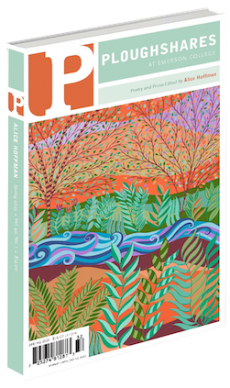 About: Emerson College’s award-winning literary journal has been publishing high-quality literature since 1971. Each of their quarterly issues is guest-edited by a prominent writer and features a mix of short stories, poetry, personal essays, and standalone novel excerpts. If you want to be featured in the magazine that helped to launch the careers of writers like Raymond Carver, John Irving, and David Foster Wallace, you may want to look at Ploughshares’ submissions guidelines.
About: Emerson College’s award-winning literary journal has been publishing high-quality literature since 1971. Each of their quarterly issues is guest-edited by a prominent writer and features a mix of short stories, poetry, personal essays, and standalone novel excerpts. If you want to be featured in the magazine that helped to launch the careers of writers like Raymond Carver, John Irving, and David Foster Wallace, you may want to look at Ploughshares’ submissions guidelines.
Submission window: June 1st – January 15th
Compensation: $45 per page (min $90, max $450)
Word Count: Up to 7,500
Submission Guidelines: Here
16. Story Magazine
About: Released three times a year, Story is a print magazine dedicated to diverse and high-quality short fiction stories, some of which have been reprinted in prestigious anthologies such as The Best American Short Stories, The Pushcart Prize, and The O. Henry Prize Stories. This outlet accepts both flash fiction and long stories, with no formal guidelines regarding style or genre. For the impatient writers out there, note that their average response time is around five months.
Submission window: Ongoing
Compensation: $10 per page
Word Count: Between 2,000 and 25,000
Submission Guidelines: Here
17. Vestal Review
About: If you’re a flash fiction writer, Vestal Review may be the ideal platform for you. This magazine seeks captivating stories of any genre and style, so long as they remain within a concise 500-word limit. They value narratives that, despite their brevity, can transport the reader from point A to point B. Oh, and they love a story that makes them laugh.
Submission window: February 1st – May 31st | August 1st – November 30th
Compensation: $75
Word Count: Up to 500
Submission Guidelines: Here
18. The Threepenny Review
About: The Threepenny Review has been publishing quarterly issues since it was founded in 1980. It features short stories of fiction, memoirs, poetry, and personal essays, reaching a readership of over 10,000 devoted readers. If you’re interested in submitting, they recommend browsing through their Reading Room to get a sense of the writing they prefer. Note that their response time can vary from two days to two months.
Submission window: January 1st – May 1st
Compensation: $400
Word Count: Up to 4,000
Submission Guidelines: Here
19. Zoetrope: All-Story
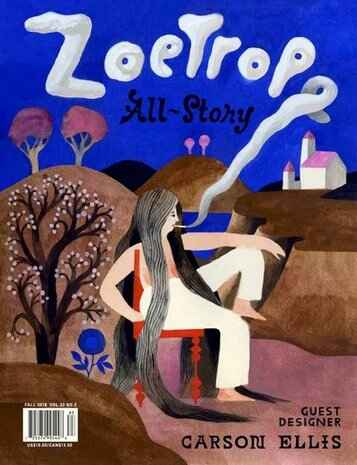 About: Co-founded by filmmaker Francis Ford Coppola (The Godfather), All-Story is a print-only journal that has been publishing quarterly issues since 1997. Each issue features a ‘Classic Reprint’ of an older story that has been adapted to film, alongside newer works from established and upcoming writers. The magazine runs an annual contest where winners stand the chance to win agency representation and have their story published in their pages. They’re currently closed to submissions, but do keep an eye out for future openings.
About: Co-founded by filmmaker Francis Ford Coppola (The Godfather), All-Story is a print-only journal that has been publishing quarterly issues since 1997. Each issue features a ‘Classic Reprint’ of an older story that has been adapted to film, alongside newer works from established and upcoming writers. The magazine runs an annual contest where winners stand the chance to win agency representation and have their story published in their pages. They’re currently closed to submissions, but do keep an eye out for future openings.
Submission window: Ongoing
Compensation: Unspecified
Word Count: Up to 7,000
Submission Guidelines: Here
Q: What are the main reasons major publishers don't accept direct submissions from authors, and how can authors successfully navigate the submission process?
Suggested answer
It's about time and workload. The in-house editors simply don't have time to read the many, many submissions they would get as well as taking care of the editorial, admin, and other work that they're responsible for. So agents that they connect with get to know the acquiring editors' preferences and tastes, and send them books they're most likely to love. The agents act as a filter. And it's still A LOT of reading to find those outstanding books that the editor knows they can shape with the author, champion in-house, and sell to the world!
Margot is available to hire on Reedsy ⏺
In short, volume. Literary agents receive hundreds, if not thousands, of queries a month. Editors, who are paid by publishing corporations, have jobs not only editing the books scheduled to publish every year, but they also have to liaise with production departments (the folks who work to turn a manuscript into a physical book), marketing and publicity teams, finance, art departments, etc.
And even with literary agents acting as a sort of "filter", editors still receive hundreds of potential books sent to them every year.
Literary agents also work for authors. Earlier, I mentioned that editors are paid by the companies they work for, that is publishers. Inherent in that dynamic, editors are paid to help find and bring books to the market that will make money for the company they work for. That means if there's a disagreement on what should happen with a specific book where the publishing company is on one side and the author is on the other, then the editor is biased (or at the very least can be pressured and influenced) to agree with the company paying them, not the author they're working with.
Literary agents fill that gap as publishing professionals who are author advocates. As an extension of having an entire role dedicated to author care, it makes sense to include working with authors at the earlier stages of writing a book, too.
Matt is available to hire on Reedsy ⏺
20. The Antioch Review
About: Currently on a hiatus. The Antioch Review stands as a revered institution among independent literary magazines, boasting an impressive legacy of over 75 years. Over the course of that history, the Review has consistently published essays, fiction, and poetry from both emerging talents and established writers. They feature only three short stories per issue, selecting the most thought-provoking, pertinent, and skillfully crafted ones.
Submission window: September 1st – May 31st
Compensation: $20 per printed page and two copies of the issue
Word Count: Up to 5,000
Submission Guidelines: Here
💡 If you want to learn what makes a good short story, and its essential elements, watch this workshop by writer Shaelin Bishop.
More resources to nail your short story submissions
While these publications are some of our favorites, there are hundreds of other places you can submit your writing. Search for them here:
- The Best Writing Contests of 2024 - Enter today
- The Best Literary Magazines of 2024 - Submit your work
Or maybe you’re still working on your writing, and are not quite sure if it’s ready to send out to the world yet. If that’s the case, here are a few resources to help:
- 8 Short Fiction Editors for Hire - Browse vetted professionals
- 10 Different Types of Creative Writing - Learn all about them
- How Many Words In a Short Story? - Find out here
And finally, perhaps you’re still at step one: you haven’t started writing yet and are waiting for inspiration to strike. Don’t worry, we’ve got you covered there as well:
- How to Start Creative Writing - Read more
- 200+ Short Story Ideas - Get inspired
- 100 + Creative Writing Exercises - Flex your mental muscles
- 700+ Creative Writing Prompts - Discover them here
Best of luck with your submissions! We hope you’ll get published by a magazine you love, and that it'll be the first step of a long and successful literary career.




